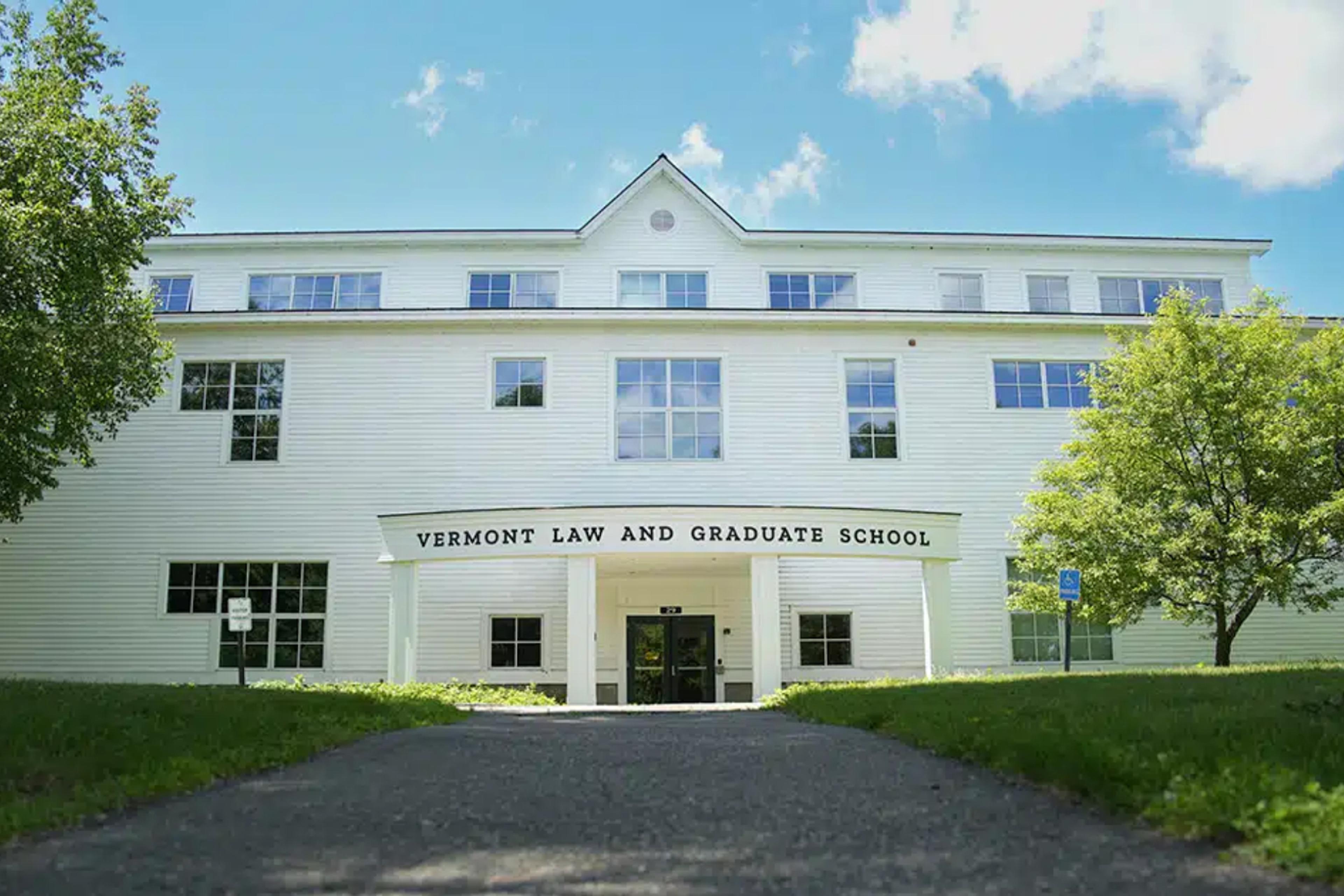How to Get Into the Fordham Law School (2024-2025)
Discover everything you need to know about Fordham University School of Law's programs and application process.
Posted March 6, 2025

Table of Contents
Free Event

Featuring Indrani S.
Law School App Office Hours with a Former Stanford AdCom Member
Starting Thursday, April 17
11:30 PM UTC · 45 minutes

Featuring Indrani S.
Fordham Law School, located at the Lincoln Center campus in New York City, is one of the top law schools nationwide. Known for its strong commitment to legal education, Fordham offers a comprehensive and rigorous curriculum that prepares students for diverse legal careers. The law school attracts applicants from all over, making the admissions process competitive. However, with the right strategy and preparation, you can increase your chances of acceptance.
This guide provides all the essential information you need to know about Fordham Law School’s admissions process, academic offerings, and key requirements.
How Hard Is It to Get Into Fordham Law School?

Fordham Law is a competitive school of law. It is one of the top law schools nationwide and attracts thousands of applicants every year. Fordham Law’s reputation for excellence in legal education, as well as its prime location in New York City, makes it an appealing choice for many aspiring lawyers.
Each year, Fordham receives a high number of applications, and only a select number of students are admitted. The admissions process is competitive, and candidates must meet high standards in several key areas, including LSAT scores, academic performance, and professional experience. Demonstrating a passion for the law, a commitment to public interest, and an understanding of Fordham’s focus on social justice and intellectual property law can help applicants stand out.
Fordham Law School Acceptance Rate
Fordham Law School’s acceptance rate typically hovers around 21.10%, reflecting its competitive nature. The school attracts top-tier students from across the country and internationally. Applicants with strong academic records, high LSAT scores, and relevant experience are more likely to be admitted.
Fordham Law Acceptance Rate Over Time
| Class Year | Acceptance Rate |
|---|---|
| 2024 | 21.10% |
| 2023 | 18.79% |
| 2022 | 17.69% |
| 2021 | 27.37% |
What Programs Does Fordham Law Offer?
Fordham Law School offers a wide range of programs to meet the diverse interests and goals of prospective students. These programs include opportunities for specialization in areas such as corporate law, intellectual property, public interest law, and international law. Adjunct professors, sourced from prestigious law firms, companies, and international organizations, play a crucial role in providing a diverse educational experience and valuable insights into the legal field.
Juris Doctor (J.D.) Program
Fordham Law’s J.D. program provides students with a strong foundation in the fundamentals of law. Students are given the tools to specialize in various legal fields, including corporate law, international business, and intellectual property. The program is designed to provide a comprehensive understanding of the law while preparing students for the legal challenges they will face in their careers. Career services and recruitment opportunities are available to JD students, including on-campus summer employment for both first and second-year students, which are crucial for their career development.
Fordham Law students benefit from the school’s prime location at Lincoln Center in New York City, which offers access to law firms, government agencies, nonprofit organizations, and other legal professionals. The location provides students with real-world legal experience through internships and externships. Fordham Law also offers hands-on learning through its various clinics, including the Feerick Center for Social Justice and the Leitner Center for International Law and Justice.
Master of Laws (LL.M.) Program
Fordham Law’s LL.M. program is designed for students who already hold a law degree and wish to gain advanced legal knowledge in specific areas. The program offers tracks in international business law, human rights law, intellectual property, and more. The LL.M. program provides international students the opportunity to deepen their understanding of U.S. law and gain exposure to the U.S. legal system.
Joint Degree Programs (Dual Degree Programs)
Fordham offers joint degree programs that allow students to earn both a J.D. and another graduate degree in fields like business, public health, or theology. These programs are ideal for students looking to combine their legal education with another field of study to open up additional career opportunities.
Clinical Programs and Hands-On Learning
Fordham Law offers clinical programs where students work on real legal cases. These programs give students practical, hands-on experience and help them apply what they’ve learned in the classroom to real-world situations. Notable clinics at Fordham Law include the Feerick Center for Social Justice, which focuses on issues like poverty and civil rights, and the Leitner Center, which specializes in international human rights law. The law school building plays a crucial role in supporting these clinical programs and hands-on learning opportunities.
Admissions Requirements – Who Gets Into Fordham Law?
Law Fordham University School is selective in its admissions process, evaluating applicants based on several key factors, including LSAT scores, GPA, professional experience, and personal statements.
Class Profile
Fordham Law’s incoming class is highly diverse, with students from various educational, cultural, and professional backgrounds. The school values diversity and understands that a wide range of perspectives contributes to a richer academic environment. The incoming class includes students from top universities and law schools nationwide, as well as working professionals with years of experience.
Academic Metrics
Fordham Law’s admissions process places a strong emphasis on academic excellence. The median GPA for accepted students is 3.75, and the median LSAT score is 167. The middle 50% of accepted students have LSAT scores ranging from 164 to 169.
| Percentile | Median GPA | LSAT Scores |
|---|---|---|
| 75th | 3.84 | 169 |
| 50th | 3.75 | 167 |
| 25th | 3.57 | 164 |
How to Get Into Fordham Law with Lower GPA or LSAT Scores
Write a Strong Personal Statement

Your personal statement is an opportunity to explain your background, experiences, and motivation for pursuing a career in law. Make sure to highlight how your experiences have prepared you for law school and how you align with Fordham’s values, especially in areas like social justice or international law.
Highlight Relevant Professional Experience
Fordham values practical legal experience. If your LSAT score or GPA is below the median, emphasize your professional experience. Experience working in law firms, government agencies, or nonprofit organizations can show your commitment to the legal profession and your ability to apply legal knowledge in real-world settings. Adjunct professors, sourced from prestigious law firms, companies, and international organizations, also play a crucial role in providing students with practical legal experience and valuable networking opportunities.
Submit Strong Letters of Recommendation
Letters of recommendation from professors, employers, or legal professionals who can speak to your intellectual abilities, work ethic, and potential as a law student can help strengthen your application.
How to Apply to Fordham Law
Fordham Law uses a rolling admissions process, meaning applications are reviewed in the order they are received and completed. To give yourself the best chance, it’s a good idea to apply early.
Application Deadlines
- Application Deadline: March 15, 2025 (for Regular Decision)
- Decision Notifications: Admissions decisions are made on a rolling basis, with notifications sent out between March and May.
- Financial Aid Deadline: April 15, 2025
Application Requirements
- Application Fee: $75 (fee waivers are available)
- LSAT or GRE Scores: Fordham accepts both, though the LSAT is preferred.
- Transcripts: You must submit official transcripts from all colleges or universities you've attended.
- Letters of Recommendation: Two letters are required, though you may submit up to four.
- Resume: Include details about your academic achievements, professional experience, and any extracurricular involvement.
- Personal Statement: Share why you want to pursue a law degree and why Fordham Law is the right place for you.
Different Types of Applicants – Requirements for Fordham Law
Reapplicants
If you've applied to Fordham Law in the past but were not admitted, it’s important to show how you've improved as a candidate. The admissions committee will carefully review your reapplication to assess how you've strengthened areas like your LSAT score, GPA, or professional experience. Updating your personal statement to reflect any new achievements or personal growth is also recommended, as it demonstrates your preparedness for law school.
Community College Graduates
Fordham Law encourages community college graduates to apply, recognizing the diverse perspectives these students bring. If you attended a community college before transferring to a four-year institution, it’s essential to highlight how this journey has prepared you for the academic challenges of law school. Emphasize the resilience, adaptability, and work ethic you've developed, showing how these qualities will support your success in law school.
Military Service Members
Fordham Law values military service members for their leadership, discipline, and commitment. If you are a military applicant, focus on how your experiences have shaped your perspective and prepared you for the rigors of law school. Letters of recommendation from commanding officers or colleagues can strengthen your application, providing insight into your leadership abilities and potential.
Undocumented Students
Fordham Law encourages undocumented students to apply, as immigration status does not affect the admissions process. These applicants should focus on their unique life experiences and how they’ve shaped their goals. Highlight your ability to contribute to Fordham’s diverse community. Additionally, financial aid and support are available for undocumented students throughout the application process.
Transfer Students
Fordham Law accepts transfer students who have completed their first year at another ABA-accredited law school. Transfer applicants must explain why they are seeking to transfer and how Fordham Law’s academic programs align with their professional aspirations. Demonstrating strong academic performance at your current law school and a clear vision for your future in law will help strengthen your application.
International Applicants
Fordham Law welcomes international applicants who hold a law degree from an institution outside of the United States. These applicants should ensure that their academic credentials are evaluated and meet Fordham’s standards. Proof of English proficiency is also required. International students should be prepared for visa and immigration processes. Your unique perspective will be a valuable addition to Fordham’s community.
Fordham Law Junior Deferral Program (JDP)
Fordham offers the Junior Deferral Program (JDP) for undergraduate students who want to secure a spot at Fordham Law and defer their enrollment for up to two years to gain professional experience. JDP applicants must complete their undergraduate degree before enrolling in Fordham Law. This program is ideal for students who want to gain real-world work experience before pursuing their legal education.
5 Expert Tips on How to Get Into Fordham Law
Focus on New York City’s Legal Scene
Fordham Law is located in New York City and offers many legal opportunities. In your application, show how you plan to use this location to advance your legal career. Be specific about how the city’s law firms, courts, and government agencies align with your career goals. Explain how your previous work or internships in New York or similar settings prepare you to succeed at Fordham.
Highlight Practical Legal Experience
Fordham values applicants with hands-on legal experience. If you’ve worked at a law firm, government agency, or nonprofit, explain what you did in detail. Focus on the specific skills you gained, like legal research, writing briefs, or interacting with clients. Use numbers to quantify your contributions when possible to show the impact you had in your roles.
Align Your Personal Statement with Fordham’s Mission
Fordham Law emphasizes social justice and public interest work. If these areas interest you, make sure your personal statement reflects that. Share specific examples of how you've worked on social justice issues or shown a commitment to human rights. Explain how Fordham’s resources, like the Feerick Center for Social Justice, can help you achieve your goals.
Show a Clear Interest in a Legal Specialization
Fordham is known for its diverse academic programs, including international law, corporate law, and intellectual property. If you have a particular legal interest, such as environmental law or immigration law, make it clear in your application. Point to specific professors, courses, or programs that align with your goals, showing Fordham is the best place for you to pursue that interest.
Choose Strong Recommenders
Your letters of recommendation are an important part of your application. Choose recommenders who can speak directly to your abilities and potential as a law student. If possible, get a recommendation from a supervisor in a legal setting who can describe your skills and work ethic. Make sure your recommenders understand your goals so they can write focused and detailed letters.
The Bottom Line
Fordham Law School offers a competitive admissions process, but with a strong LSAT score, high academic performance, and a compelling application, you can increase your chances of admission. The school’s strong academic reputation, location in New York City, and commitment to social justice make it an excellent choice for aspiring lawyers. With its diverse degree programs, clinical opportunities, and networking potential, Fordham Law provides students with the resources they need to succeed in the legal profession.
Getting into law school can be challenging, but a good coach can help. Our expert admissions coaches have assisted many students in getting accepted to top law schools, like Fordham Law School. Whether you need help with your personal statement, resume, or interview preparation, our coaches are ready to support you.
Related Articles
To help you explore the law school admissions process and learn more about Emory Law and other top law schools, check out these helpful articles:
- LSAT vs. GRE for Law School–Which to Take and How to Ace Both
- How to Decide Where to Apply for Graduate School
- The Top 10 Accelerated JD Programs
- How to Write a Powerful Personal Statement for Your Law School Applications
- How to Get Into Law School: Advice from an Expert
- Top 30+ Free Resources for the LSAT
- How Many Letters of Recommendation for Law School: A Comprehensive Guide
- How to Answer the Most Common Law School Interview Questions
- Top 10 Ways to Prepare for Law School
FAQs
Is Fordham a top 20 law school?
- Fordham Law is consistently ranked among the top law schools in the United States, typically falling within the top 25 range. While it may not be in the top 20 of every ranking, it is considered a prestigious institution with a strong reputation, particularly in areas like intellectual property, international law, and public interest law.
Is it hard to get into Fordham Law?
- Yes, Fordham Law is competitive. With an acceptance rate of around 27%, the school admits only a select group of students each year. A strong academic record, high LSAT scores, relevant work experience, and a compelling personal statement are essential to stand out in the admissions process.
Is Fordham Law Ivy League?
- No, Fordham Law is not part of the Ivy League. However, it is a highly respected law school located in New York City. Its proximity to top law firms, government agencies, and nonprofit organizations provides its students with excellent professional opportunities. Fordham is considered one of the top law schools in the country, even though it is not in the Ivy League.
Does Fordham Law School offer financial aid?
- Yes, Fordham Law offers financial aid through merit-based scholarships, need-based grants, and federal loans. Merit scholarships are awarded to incoming students based on academic performance, and need-based grants range from $2,000 to $25,000 for students who demonstrate financial need. Additionally, students can apply for federal student loans, such as Direct Unsubsidized Loans and Grad PLUS Loans, to help cover the costs of tuition and living expenses.










